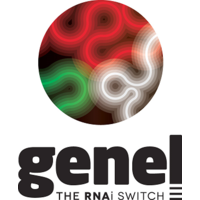So, What Were the Hot Topics at the IFSCC Congress 2018? by GENEL
23 November 2018
The International Federation of Societies of Cosmetic Chemists (IFSCC) is a world-wide association dedicated to international cooperation in cosmetic science and technology. This year, the 30th Congress was held during 18-21 September 2018 at Munich, Germany where over 1200 participants from 28 countries gathered to discuss cutting-edge science (Source: IFSCC Congress, 2018). The below summary is an overview of the Congress as described by our Techno-commercial Expert.
One among the main topics highlighted in the Congress was antiaging products, including sunscreens. Though the sunscreens contained UVB and UVA filters as key ingredients in the past, today it has become essential to recognize the necessity to offer combined protection to the skin against both visible and invisible light spectrum.
The omnipresent Blue Light
With a rise in the use of gadgets in our daily lives, we are increasingly exposed to the blue light emitted from the screens of televisions, computers and smartphones. In this context, understanding the diverse effects of blue light on skin has become important and GENEL presented its findings to address the question. Through a recently developed in-house strategy that is capable of emitting blue light of particular wavelengths, we were able to unravel that the various intracellular effects were indeed dependent on the constitutional wavelength of radiation. For example, the shorter wavelength (447 nm) increased the production of reactive oxygen species (ROS) in human primary keratinocytes, induced hyper-pigmentation in human primary melanocytes and induced genes involved in extracellular matrix (ECM) remodelling in fibroblasts. On the contrary, the longer wavelength (462 nm) reduced ROS production in skin explants. In addition, it decreased the expression of ECM genes and consequentially increased the speed of wound-closure in scratch assays. Through this study, a panel of multi-disciplinary tests has been developed that can evaluate whether a cosmetic active ingredient can strengthen the protective properties or protect against the negative effects of blue light (genSpectra).
A topic that garnered attention at various levels was pollution and its consequential effects on skin and hair. While some posters laid emphasis on the beneficial effects of several plant extracts in protecting the skin against the damages induced by environmental pollutants, urban dust, cigarette smoke etc., ample consideration was given to the underlying biological concepts such as sebum production, protein carbonylation, intracellular oxidative stress and the role of antioxidants. In alignment with this theme, GENEL presented its findings to highlight the importance of mitochondrial turnover in oxidative stress.
Is mitochondrial turnover important for cells?
The process of mitophagy through which the cells eliminate defective mitochondria by fragmentation and retain the functional ones by fusion functions as an efficient quality control scheme. However, in response to an induced oxidative stress, we observed an upregulation of key genes involved in mitochondrial fission, mitophagy and autophagy. At the same time, there was a downregulation of key miRNAs correlated with increased autophagy. The functional validation studies complemented these observations with conspicuous reduction in mitochondrial activity and ATP production. Further, the structural changes displayed through mitochondrial fragmentation synergistically confirmed that oxidative stress induced mitophagy and eventually leads to autophagy of cells. Based on this study, innovative tests are now available to evaluate the ability of cosmetic active ingredients in inducing mitochondrial turnover and homeostasis (genERGY).
Additionally, genDETOX is available as a preliminary test to identify the active ingredient with the highest ability to activate the detoxification response in skin cells.
It is well known that skin is a multi-layered complex organ composed of a variety of cells- keratinocytes, melanocytes, fibroblasts, immune cells and adipocytes. An interesting area discussed during the Congress was regarding the effect of the active ingredients in different layers of the skin. Indeed, the application of cream on the outer layer of skin stimulates keratinocytes that send specific messages notably by exosomes to target cells in the inner layers. In the same context, increased insights about the exosomal communication between the different variety of cells comprising the skin is imperative. EXOgen is one such cell-based test that explores the exosomal communication to reveal the actual effects of active ingredients. The underlying technique of this assay has helped in understanding specific epidermis-dermis cross-talks in several of our successfully completed projects.
In conclusion, the IFSCC Congress provided an excellent opportunity to understand the current trends and hot topics of research in Cosmetic Science. It definitely advanced the knowledge of the participants and provided a platform for international networking between industry researchers, technical experts and academicians.
How can GENEL help you?
GENEL is a French biotech company offering innovative services to the cosmetic industry. Leveraging on or decade-long expertise in Cosmetogenomics, we assist you in discovering the true potentials of your active ingredients through appropriate strategies tailored to suit your needs, using in vitro and ex vivo models. In addition to the ones mentioned above, GENEL offers several multi-disciplinary tests to unleash the true potential of cosmetic active ingredients. For example, genPROTECT is a panel of 3 innovative and complementary tests that assess the ability of your active ingredient in protecting against or repairing the DNA damage.
Yet another test, GenScreening is a reliable solution to identify dermo-cosmetic pathways and their key genes and/or miRNAs modulated by your active ingredient. This screening test relies on a constantly updated list of novel genes involved in various processes associated with Skin Biology such as autophagy, mitochondrial fission and fusion, sebum production, pluripotent stem cells etc., apart from the regular, well-known pathways.
Read more: GENEL Newsletter-November 2018
Contact
Contact us: info@genel.fr
Website: www.genel.fr








 Follow us on Linkedin!
Follow us on Linkedin!
You must be logged in to post a comment.